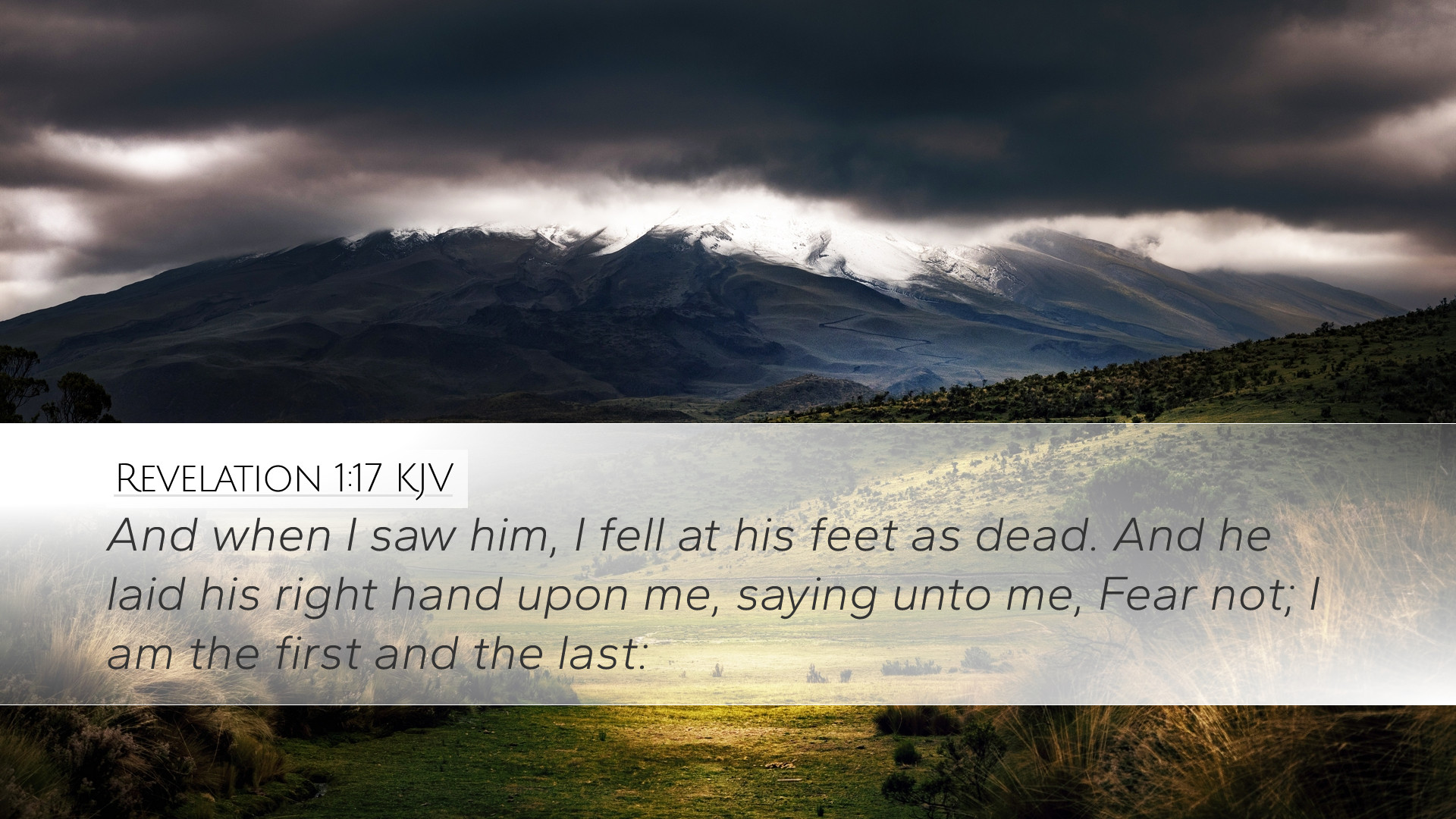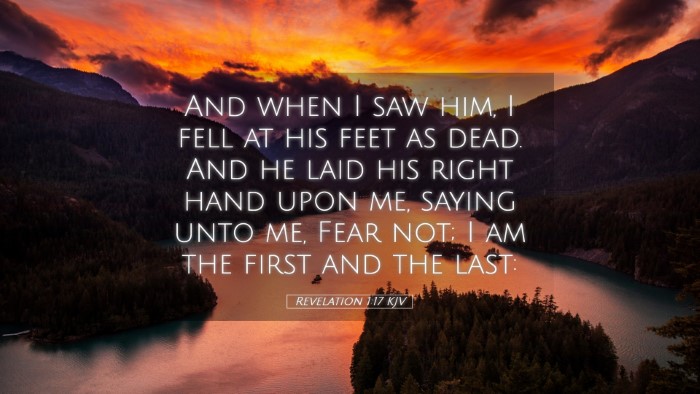Commentary on Revelation 1:17
The verse Revelation 1:17 states:
"When I saw him, I fell at his feet as dead. And he laid his right hand upon me, saying unto me, Fear not; I am the first and the last."
Introduction
This profound verse captures the essence of a divine encounter that John the Apostle experienced as he received the Revelation. The description is rich in theological significance and encapsulates themes of fear, reverence, and the assurance of Christ’s sovereignty. Various public domain commentaries provide detailed insights into this momentous passage.
The Encounter with the Divine
Matthew Henry emphasizes the overwhelming majesty of Christ that John beholds. John’s immediate reaction—falling as Dead—reflects the natural human response when faced with the Divine glory. This act signifies the proper worship and reverence due to God, illustrating the holiness of God and the humility of man.
Albert Barnes expands on this notion by elaborating on the fear that accompanies such encounters. He suggests that John's reaction represents not just physical prostration but the spiritual acknowledgment of the greatness of Christ. The fear encountered here is not merely dread but a deep respect and awe for the Almighty.
The Significance of 'Fear Not'
Following John’s reaction, Christ reassures him with the words "Fear not." This statement is powerful in its implications:
- Assurance of Presence: The phrase indicates Christ's unchanging presence with believers. As identified in other portions of Scripture, the Lord often reminds His people of His abiding presence and support.
- Encouragement for the Mission: This moment serves as a pivotal encouragement for John's forthcoming revelations. It's vital for scholars to understand that this reassurance transitions John from fear to readiness for his commission.
Christ’s Eternal Nature
In the latter part of the verse, Christ identifies Himself as "the first and the last." This declaration serves multiple purposes:
- Affirmation of Sovereignty: Adam Clarke highlights that this title emphasizes Christ's omnipotence and sovereign control over history. It shows that Christ exists before all creation and will remain after it has passed. His eternal nature reassures believers that He orchestrates all events according to His divine plan.
- Encouragement in Trials: For the early Christians facing persecution, this reminder of Christ’s eternal existence provided courage. They faced temporal struggles, but were assured of their eternal destiny through Him.
- Theological Implication: This title also ascribes Christ's deity, affirming His oneness with the Father in essence and authority. This has been a significant point in historic Christian confession regarding the nature of Christ.
Conclusion
In essence, Revelation 1:17 is a profound reminder of the balance of fear and comfort that comes from experiencing the divine. John’s encounter teaches us that:
- We must approach God with reverence and humility.
- In our moments of fear or doubt, we find comfort in the unchanging presence of Christ.
- Christ’s eternal existence assures us of His sovereignty over the entirety of history and our individual lives.
By examining this passage through the lenses of esteemed commentaries, we gain a more robust understanding of its implications for believers. The message of Revelation 1:17 remains relevant, fostering a deeper relationship with Christ and guiding our journey in faith.


